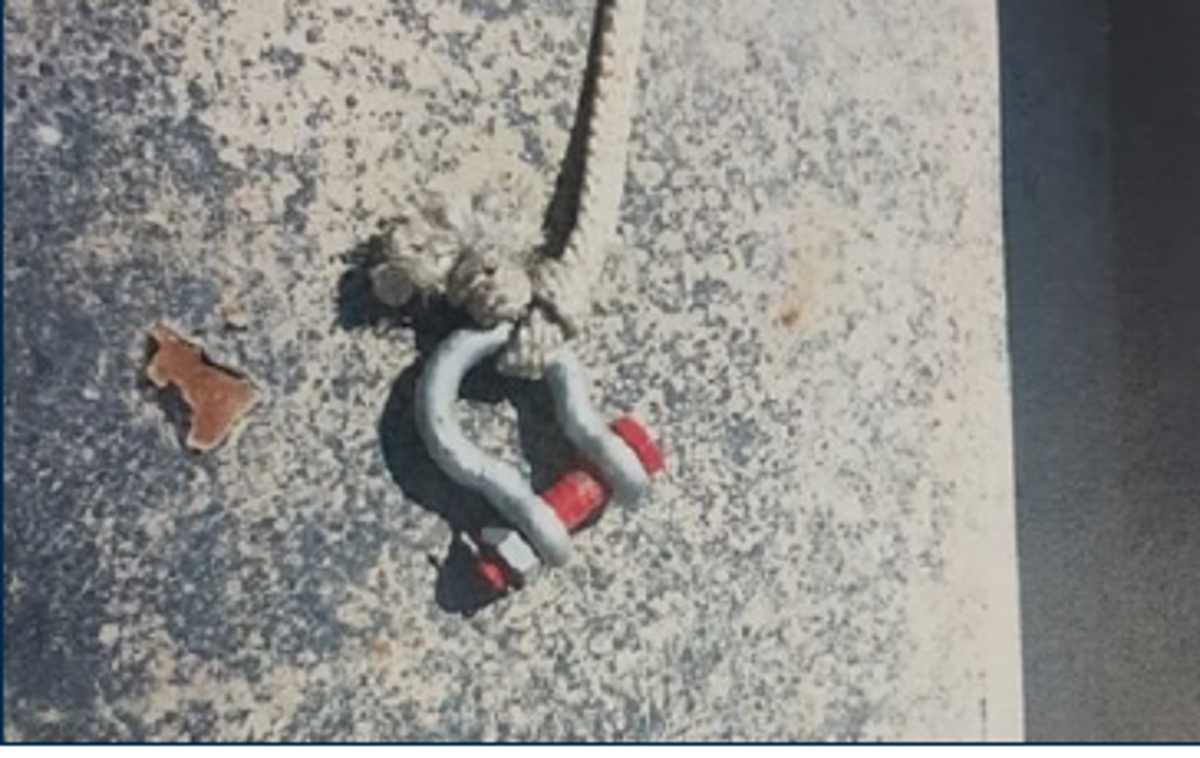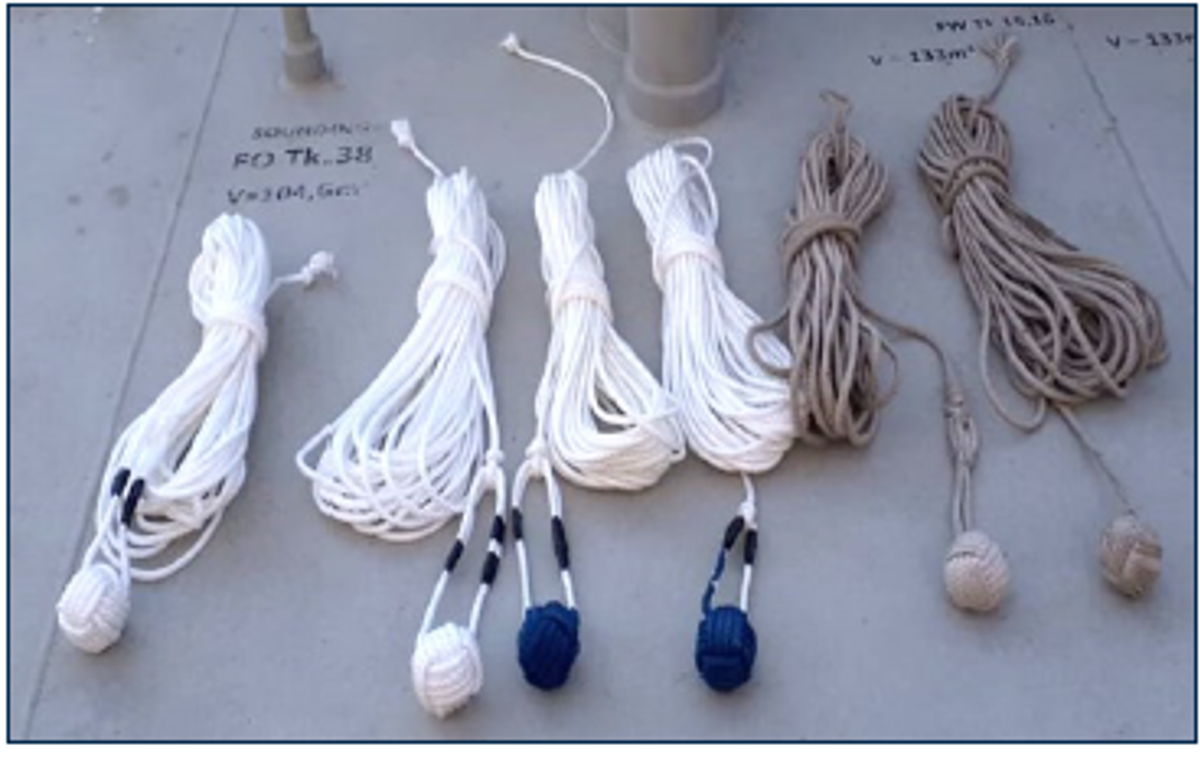Improper use of heaving line
- Safety Flash
- Published on 17 December 2019
- Generated on 1 March 2026
- IMCA SF 30/19
- 1 minute read
Jump to:
During a mooring operation, vessel crew were found to be using a 4-ton shackle attached to a heaving line (instead of proper “monkey fist”).


What went wrong?
The crew did not have an available heaving line with a “monkey fist”.
What actions were taken?
-
Risk assessment for mooring operations to be reviewed.
-
A check to be included to ensure that a sufficient number of heaving lines with “monkey fist” are available.
-
In this case, at least 9 heaving lines were to be kept on the vessel (2 for use at each mooring station plus 1 spare).
-
Members may wish to refer to:
- IMCA HSS029 - Mooring practice safety guidance for offshore vessels when alongside in ports and harbours
Featured Safety Flashes
-
IMCA SF 24/18
30 October 2018
-
-
IMCA SF 13/14
17 July 2014
IMCA Safety Flashes summarise key safety matters and incidents, allowing lessons to be more easily learnt for the benefit of the entire offshore industry.
The effectiveness of the IMCA Safety Flash system depends on the industry sharing information and so avoiding repeat incidents. Incidents are classified according to IOGP's Life Saving Rules.
All information is anonymised or sanitised, as appropriate, and warnings for graphic content included where possible.
IMCA makes every effort to ensure both the accuracy and reliability of the information shared, but is not be liable for any guidance and/or recommendation and/or statement herein contained.
The information contained in this document does not fulfil or replace any individual's or Member's legal, regulatory or other duties or obligations in respect of their operations. Individuals and Members remain solely responsible for the safe, lawful and proper conduct of their operations.
Share your safety incidents with IMCA online. Sign-up to receive Safety Flashes straight to your email.